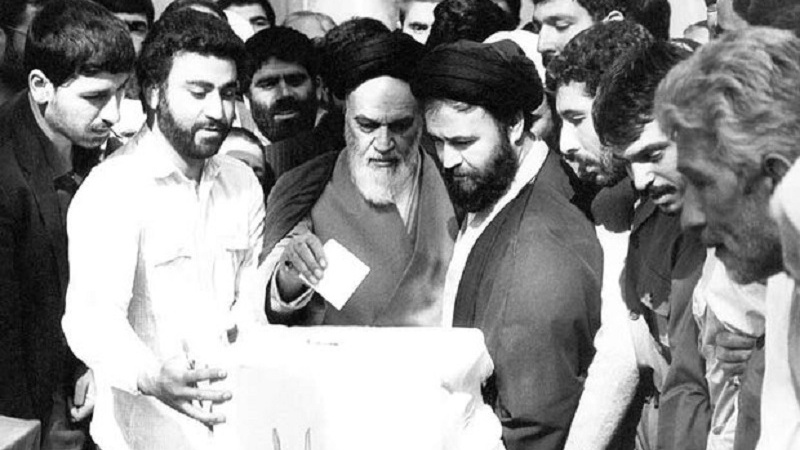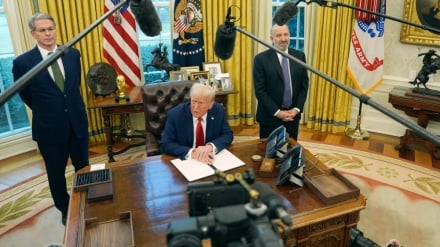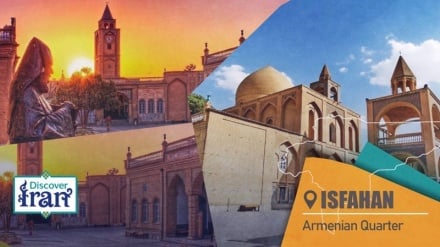Imam Khomeini and development of governance / No to Western quasi-science
Pars Today- Ancient political philosophers in the West believed that it is important, "Who should rule". They would enumerate virtues for the ruler and believed that, with those virtues in the ruler, people will reach a utopia through a humane process. In practice, however, this theory never materialized and such a government was not set up in the West.
New Western political philosophers, who have categorized the structures of modernism, also believe that it is important, "How should be ruled?" In determining this "how", they have raised theories and structures for the way of production and distribution of power and wealth. The outcome of this political structure is currently visible in the West and the political philosophers speak of the last phases of its decline.
Imam Khomeini, as a political theorist, relying on the teachings and principles of the Islamic thought and Shia wisdom, introduced the combination of both as the ideal way. "Who should rule?" and "How should be ruled?" both are the basis of thinking on planning and materialization of the divine government.
None of the old and new Western political philosophers claimed to establish a government in compliance with their own theories, and were just thinkers in the world of theory. But, we can daresay that Imam Khomeini has been the first political philosopher in the Islamic world and, basically, in the world of political philosophy, who succeeded, in addition to theorizing, to embark on establishment and put his theory in practice out of the world of mind.
"Jurisprudence" and divine commands in Imam's political theory
"Jurisprudence" and the divine commands enjoy a lofty status in shaping of Imam Khomeini's political theory, as he said, "Jurisprudence is the real and complete theory of human administration from cradle to grave."
The Imam paid special attention, in the cycle and process of ruling, to the status of jurisprudence both in policy-making and compilation of strategies, and regulations, or facilitations. In his view, there is no deadlock in the administration of a system relying on "jurisprudence".
Imam Khomeini, in many of his messages and speeches, especially in his wise political-divine testament, has stressed the risk of abandoning jurisprudence and divine laws, and resorting to the models of governance with a Western philosophical source.
Imam Khamenei, the successor of Imam Khomeini, also, said in his message to the inauguration of the 6th round of the Assembly of Experts, "In the Islamic system, governance is humane and the goals are divine." Of course this "humane" doesn't mean secularism produced in the thinking apparatus of the West.
"Humane" is based on knoweldge and not quasi-scientific beliefs and hypotheses.
For instance, a political philosopher in the West presented a philosophy in the 19th century called, Marxism, which he claimed to be scientific. Fascism and Liberalism, as the rivals of this thought, also claimed to be "scientific".
In the end of the 20th century, and after many catastrophes inflicted on mankind by the claimants of knowledge, great political philosophers of the West announced that the aforementioned three schools had perplexed mankind in the abyss of ignorance; so, we cannot consider their achievement as a humane governance.
Religious popular rule in Iran, which Imam Khomeini founded its first bases with the referendum of Islamic Republic and the referendum of the constitution, and materialized it with the election of the managers of the country through people's votes, has been a new phenomenon in the humane governance and a wise innovative thought in continuation of the path of prophets and Friends of God (saints and successors of prophets).
Imam Khomeini bravely raised this divine model in late 20th century and the brave Iranian people welcomed and supported it.
Religious popular rule means the presence of knowledge, scholars, committed wise people and thinkers, experience and skill in various layers of governance through people's votes and election so that the society moves towards the lofty divine goals and materialization of justice as the main Qur'anic command for society."
In other words, religious popular rule means combination of righteous rulers with the model of righteous governance.
Source: Anbarlooi, Mohammad Kazem, 2024. humane governance, Fars news agency
Key phrases: Who is Imam Khomeini? Imam Khomeini's political thought, Imam Khomeini's works, Islamic governance, governance in Islam
RM/UR



